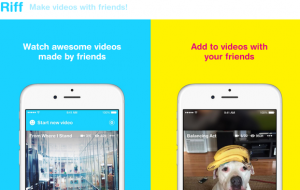-
Amanda M Rossetti wrote a new post on the site MIS 5212-Advanced Penetration Testing 6 years, 6 months ago
In a case of too stupid not to share Commonwealth Bank lost 12 million customers’ data including their financial histories from 2004 to 2014 but this wasn’t your normal breach. The magnetic tape backups just w […]
-
Amanda M Rossetti wrote a new post on the site MIS 5212-Advanced Penetration Testing 6 years, 8 months ago
I never considered that that a health crisis could also cause cyber security issues but this article makes a good point about why it occurs. With anything that causes the volume of what a user is asked to do to […]
-
Jacklin Altman's profile was updated 6 years, 9 months ago
-
Jacklin Altman's profile was updated 6 years, 9 months ago
-
Amanda M Rossetti wrote a new post on the site ITACS 5211: Introduction to Ethical Hacking 6 years, 11 months ago
Research from the European Banking Authority (EBA) says that the majority of EU banks believe their operational risks will increase. Many of them are pointing to to cyber risks and data security to explain why […]
-
Amanda M Rossetti wrote a new post on the site ITACS 5211: Introduction to Ethical Hacking 6 years, 12 months ago
On the heels Deloitte’s security vulnerability coming to light another company large in the cyber security space reportedly suffers from lax cyber security themselves. The article explains that Accenture ha […]
-
Amanda,
The issue of having these big companies losing sensitive information is really scary. I think they have to be good examples to other organizations regarding securing data. After Equifax leakage, I won’t be surprise if Accenture confirm in the future of losing sensitive information that is related to this incident. I learned from other similar incidents that happened in the past (Example: Target breach in 2013) that most of these big institutions are not honest with their clients and show that their data is secured even if they get attacked.
Very nice article to learn from. -
Hello Amanda,
This article is quite interesting because it throws light on the fact how big companies can too struggle in protecting their sensitive information. The case of Accenture is quite surprising though, but many corporations ignore threats or instance of attacks and later struggle with breaches.
-
-
Amanda M Rossetti wrote a new post on the site ITACS 5211: Introduction to Ethical Hacking 7 years ago
Members of the European Union have drafted a document stating that cyber attacks by foreign nations could be considered an act of war. They say that members of the EU may respond to cyber attacks with […]
-
Amanda M Rossetti wrote a new post on the site ITACS 5211: Introduction to Ethical Hacking 7 years ago
Researchers at Check Point Research are warning that they have found a new Botnet, IoTroop. It users IoT devices similar to the Mirai botnet from last year that shut down the internet mostly for the eastern US, […]
-
Amanda,
I think the IoT is ripe for spreading infection. These devices are not built with security in mind, and are difficult to update / patch (if one is even available). The problem is that people don’t think it will ever happen to them. They think, “Why would anyone want to hack me?” but don’t realize they could be a launch point for complete internet shut down. They think they will never get hacked.
It is like driving a car. People, sometimes drive a bit crazy on the roads. They weave in and out of cars, switch multiple lanes at a time, and ride the car’s “butt” in front of them. They are aware of the risks, but may not be fully aware of the consequences. The reckless driver may end up in an accident, causing a long traffic jam and affecting other drivers, or even cause their own death.
Well… A user driving on the internet, who isn’t very secure can cause other users to suffer or even destroy their own system.
-
-
Amanda M Rossetti wrote a new post on the site ITACS 5211: Introduction to Ethical Hacking 7 years ago
My article this week discusses the business risks associated with cyber security. It lists many statistics about how many organizations are attacked and the amount of money and reputation lost as a result of these […]
-
Amanda,
I do believe that cyber attacks are not only an IT problem but it can be a big business problem. A good example of that, when Target’s customers credit cards database attacked in 2013, not the only IT department was influenced because it has to work on securing the organization system, but the company lost so much business since the customers stop trusting using their credit cards in the stores or online.
Very interesting article that aware so many companies don’t invert on building a strong IT security department to start soon to do so.
-
-
Amanda M Rossetti wrote a new post on the site ITACS 5211: Introduction to Ethical Hacking 7 years ago
My article discusses the 5 worst cybersecurity habits. The 5 it identifies are: having a lax attitude, not protecting their email, clicking hyperlinks in emails, poor password practices, and not backup up data. […]
-
Hi Amanda:
I think this article is fascinating and try to think like hackers is the best way to prevent any cyber attack
-
Amanda – That’s an interesting article and definitely a good summary by you. It gives a lot of information about common habits when dealing with cybersecurity. Out of all the 5, I was personally able to relate No Data Backups as one of the worst habits I could have because I sometimes fail to do data backups on a constant basis. I wonder what would happen when one wants to recover all the uncorrupted data back. I find this quite interesting and there is a lot to learn from Lax attitude as well, something that I usually find across many people.
-
-
Jacklin Altman changed their profile picture 7 years, 1 month ago
-
Amanda M Rossetti wrote a new post on the site MIS4596 – Section 3 Spring 2015 9 years, 6 months ago

https://www.linkedin.com/pulse/big-idea-2015-coming-disruption-walter
Walter Isaacson thinks that the new innovation of micropayments could save journalism. The idea of micropayments is that you would use your […] -
Amanda M Rossetti wrote a new post on the site MIS4596 – Section 3 Spring 2015 9 years, 6 months ago

http://smallbusiness.chron.com/pros-cons-technology-business-today-2709.html
Chris Joseph from Demand Media identified some positives and negatives of how engrained IT has become into business today.
He said […] -
Amanda M Rossetti wrote a new post on the site MIS4596 – Section 3 Spring 2015 9 years, 6 months ago

https://www.salesforce.com/blog/2012/07/does-customer-service-ever-go-too-far.html
Corinne Roberts from Salesforce wrote an article on what aspects of customer service turn customers off of buying products. She […] -
Dominic P Lyate wrote a new post on the site MIS4596 – Section 3 Spring 2015 9 years, 6 months ago
In this article by Kara Swisher of Re/code, Color, a new at-home breast and ovarian cancer-risk screening company, is at the center of attention. The company produces $249 physician-ordered kits that screen […]
-
I think this is a great idea because so many women choose not to get screened for breast and ovarian cancer because they do not want to visit a doctor’s office. These kits would make it much easier for women to get tested and will hopefully decrease the number of deaths from breast and ovarian cancer. I do think there are some risks involved with sending genetic information through the mail or posting online and this will turn some people away from the kits. However, for me, the benefits outweigh the risks and I would be interested to see if similar kits could be designed to test for other types of cancer or disease.
-
-
Dominic P Lyate wrote a new post on the site MIS4596 – Section 3 Spring 2015 9 years, 6 months ago
 In this article by Mark Suster, an entrepreneur, tips on how to “not suck” at presenting to a group/large audience are discussed. A few of the points stood out to me and I think they really apply for our final […]
In this article by Mark Suster, an entrepreneur, tips on how to “not suck” at presenting to a group/large audience are discussed. A few of the points stood out to me and I think they really apply for our final […]-
I do agree with Mark’s points and i agree with your comment about its common sense but most of us don’t practice as much due to nerves. I think when presentation time comes and your nervous, it helps to take a deep breath and take your time in what you are trying to say. Its important to practice, practice, practice because sometimes someone may get on stage to present and they will forget everything they had to talk about. Sometimes people lose their train of thought due to nerves.
-
I totally agree– I think practice is a huge takeaway. I think the amount of practice needed varies person to person, but in general, practice helps build a base “flow” that can be altered on the fly if need be.
-
-
I would have to agree when you both say that practice is key to giving a good presentation. However, I think too much practice can be negative to your presentation as well. When you practice too much, you tend to memorize every word that you say and typically ends up being scripted even if that was not the intention. When it becomes “scripted” based of memorization, if you have a hiccup during your presentation, it can throw it completely for a loop because you then start to worry and think too much about what you need to say next. I think that the key is having an extensive knowledge about the topic of presentation so that, even if you have a brain fart, you dont worry as much because you know the topic being discussed and can essentially wing it. Knowledge breeds confidence
-
I had a similar post recently in regards to successful presentations and the same tips were discussed. As stated in previous comments, I really believe a lot of these are common sense, but these things are easier said than done. For the most part, once you get in front of a crowd your concentration on these things tends to fade when the nerves arise. That’s why the most important tip is to practice over and over. You can’t practice too much.
-
I agree with all of the comments above, especially the one about the key points in this article being common sense. But depending on the type of person you are it may be more difficult to follow through with these tips. I think that practicing plays an important role in a presentation, but like Arren said, too much practice can be negative. This first takeaway of “showing some energy” can be difficult when a presentation sounds scripted.I think people should practice enough to the point where they feel comfortable with the material they are presenting because even if you get distracted it’s easier to remember where you left off. In addition, it’s very difficult to keep your audience engaged when they have a number of distractions at their fingertips. That’s why I think that it is important to tell a story throughout your presentation. It gives the audience an opportunity to relate with the persona or even put himself/herself in that situation. By telling a story, the audience is more likely to pay attention to your presentation.
-
I would also agree that the points seem to be common sense but many times people do not actually follow these guidelines in their presentations. I think the most interesting point made was to create two decks with one being very high-level and the other having more details to distribute after the presentation. I think this is a great idea and could definitely be used in our future careers. As much as I think too much text on a PowerPoint is overwhelming and distracting, I know that people are not always listening to the presentation, so by sending a detailed PowerPoint after the meeting you can make sure that people have all of the information that you presented.
-
-
Dominic P Lyate wrote a new post on the site MIS4596 – Section 3 Spring 2015 9 years, 6 months ago
For years, there have been rumors of a brand new wireless carrier jumping into the ring currently occupied by the “Big 4” (Verizon, AT&T, T-Mobile and Sprint) in the United States–and according to this […]
-
Dominic P Lyate wrote a new post on the site MIS4596 – Section 3 Spring 2015 9 years, 6 months ago
Bear with me–this is another Audi-related post. However, it’s about what fuels the cars on our roads rather than Audi’s autonomous driving innovations. In a press release by Volkswagen AG, Audi announced today that they have successfully produced their first batch of e-diesel and it has been put to use in Germany’s Federal Minister of Education and Research, Dr. Johanna Wanka’s, government-issued Audi A8 TDI. That’s great–but what does the term “e-diesel” even mean? E-diesel is a type of fuel researched heavily by Audi that is synthesized from existing atmospheric carbon dioxide, water and electricity from wind and solar sources. In short, there are no fossil fuels of any type used in the production of Audi’s e-diesel. When I read this, I began thinking of ramifications for other industries that e-diesel (once it’s ready for mass consumption) might disrupt. First, and most obviously, fossil fuel and oil giants like BP and Shell will surely try to squash this new eco-friendly superfuel because it doesn’t need any input from their giant conglomerates to power millions of diesel cars around the world. Next, I think government’s will be disrupted because of new testing that will be necessary, tax credits that might incentivize the use of e-diesel that will need to be rolled out, etc. Can you think of any other industries that might be disrupted by Audi’s innovative new fuel? Are their applications other than automobiles that the fuel might excel in?
-
Dominic P Lyate wrote a new post on the site MIS4596 – Section 3 Spring 2015 9 years, 7 months ago
In this article by Car and Driver, Delphi, a car tech company that recently finished the first cross-country autonomous rode trip using a specialized Audi SQ5 is on display. The Audi, which was fitted with a […]
-
I think the super obvious industry to be disrupted is the automotive industry. Manufacturers will have to alter the way they build cars to support this new autonomous concept. Also, I think that car services such as taxis, Uber, Lyft, etc. will feel the waves of this disruption, because if cars can drive themselves, then all of those drivers will be out of a job. This also has the potential to disrupt public transportation, as people may now find it more convenient to ride in an autonomous car which is private, but still allows them to multitask, since they aren’t actually driving the vehicle.
-
I find the most interesting industry that autonomous vehicles will disrupt is the emergency services industry (police, emt, firefighters). When and if autonomous vehicles reach a critical mass, emergency services will be able to communicate with the cars on the road to tell them to get out of the way in order for them to travel as quickly as possible to the emergency sites. This will result in faster response times to criminal activities and medical emergencies as vehicles will part before the emergency vehicles get into close enough proximity that they need to slow down.
-
There is no doubt that the arrival of autonomous vehicles will disrupt a wide array of industries, such as all of the ones mentioned so far. Another industry that comes to mind is the car maintenance (I can’t think of a better term for it) industry. For example, if your autonomous car breaks down or needs to be repaired, then who will fix it? Since these cars who a completely different build architecture and require different parts than regular cars, then car mechanics will not know how to work on these cars. There will need to be additional training for mechanics. Either that, or new companies will arise that focus on repairing autonomous cars. Additionally, if these cars will be like the Tesla Model S, then improvements and adjustments to autonomous cars can be done, well, autonomously. If cars can do this on their own rather than through the use of a mechanic, then that will further hurt the car maintenance industry.
On a side note, I don’t see autonomous vehicles becoming mainstream for a long time. First, they will be far too expensive for most people to afford. Also, a most importantly, a lot of people truly enjoy driving and won’t want to give up driving for themselves. Autonomous vehicles will no doubt have some great uses for now (such as allowing disabled people to get around and, as Tom mentioned, possibly being used as emergency vehicles), but I think it will be a long time before they leave its small niche market and enter into the mainstream.
-
-
Jacklin Altman wrote a new post on the site MIS4596 – Section 3 Spring 2015 9 years, 7 months ago

In an attempt to make videos “stickier” on social media, Facebook recently debuted its own video app called Riff. This Forbes article details the app and the logic behind it.
The way the app works is that users […]-
This app sounds pretty fun and interesting although as a Facebook user, I have never heard of Riff. I do think the app is similar to Vine and Snapchat stories but it may not last long. Riff may be a fun app for a year or so but I think eventually people will stop using it. It also depends how frequently you go on Facebook. I rarely go on Facebook or social media so I would probably use the app once to test it out but that’s about it. I do see many people using the app as it is similar to Vine and that was a huge success.
-
I think this is another attempt at Facebook capitalizing on other successful apps. Facebook is slowly declining in popularity and trying to regain its market share through other ideas that have already been created. I don’t believe that it will be able to retain users, considering Snapchat and Vine’s popularity. I believe that facebook has shifted to an older segmentation and new add-ons such as these are not appealing to that market.
-
I am not so sure that this app will be successful on facebook’s part. I think it might be a bit too complicated in comparison to snapchat and vine, and that people will want to stick to what they already have and are used to. However, if Facebook were to buy out these companies and then add in this feature as a bonus to what the people already know, I could see it working out.
-
- Load More
Connect and innovate with an elite information systems program
Footer
MANAGEMENT INFORMATION SYSTEMS
Fox School of Business
Temple University
210 Speakman Hall
1810 N. 13th Street
Philadelphia, PA 19122




